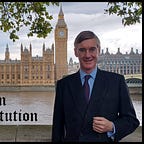Political funding is currently in the news, because of the rumour that Elon Musk will give Nigel Farage and Reform $100 million. As yet, no cash has been sent, but the publicity it has generated is already valuable. It is a reminder that any democratic constitution is dependent on political parties, and so how they are paid for is of fundamental importance and a sign of how democratic a country is. The rumours that Labour will tighten funding rules are also a warning that the Government of the day can use its power to hamper its opponents efforts.
In the United Kingdom, before Blair came to power in 1997, elections were heavily regulated, but political parties were not. This changed with the introduction of the Registration of Political Parties Act 1998. This set up, for the first time, a legal registration of parties that determined what name went on the ballot paper.
At this point, the Conservative Party itself did not have a specific legal form; the individual Associations were unincorporated bodies joined together in the National Union. The above Act coincided with reforms, which were instituted by William Hague at about the same date.
As so often, a minor and rare problem was solved by law that introduced costly and extensive regulation. The most well-known abuse was the occasion when a party called the ‘Literal Democrats’ stood in an European election, and took enough votes to allow the Conservatives to win, on the reasonable assumption that people confused the word literal with liberal.
Once the register was introduced this could not happen but, as often occurs, such legislation has unintended consequences.
For instance, especially in local elections, but occasionally in parliamentary ones, local organisations fall out with each other. This used to lead to people standing as ‘Independent Conservatives’, or ‘Independent Labour. This clear differentiation was banned under the 1998 Act, and now people may only stand for an officially registered party or as an independent.













